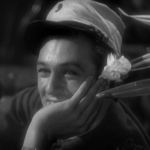 |
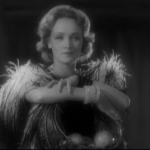 |
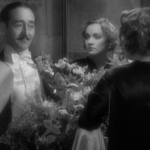 |
| Tom Brown Gary Cooper |
Amy Jolly Marlene Dietrich |
La Bessiere Adolphe Menjou |
| Released by Paramount | Directed by Josef von Sternberg Run time: 91 minutes |
||
Proof That It’s a Pre-Code Film
- “What are you doing with those fingers?”
“Nothing. … yet.”
- One infamous scene has Dietrich, in a tux, kissing another woman straight on the mouth:
Morocco: Love Among the Dunes
“Do you love him?”
“I don’t know… I hope not!”
Morocco is an exotic love fable, one of foreigners in a strange land with nothing to lose but their self control. And it’s tempting, too, in this strange land of sweat and sand, where the heat follows you at all times just like those nagging regrets of life. The three main characters of Morocco are all in search of something, though none of them would admit it.
Amusingly, the film opens with a man fighting his donkey– a literal stubborn ass– to get out of the road, which sets up a pretty unsympathetic view of the main characters as the film unfolds. Both of the lead romantic couple, foreign legionnaire Gary Cooper and nightclub singer Marlene Dietrich have seen their share of trouble in the world, and each have embarked on a quest to forget their past– and conversely exist without one. This sense of being adrift forms their actions, for even as they fall suddenly, madly in love, neither has the grounds for trust. It’s not just that they’ve been hurt before, but that they’ve clearly hurt others too.
One thing that can easily be said about von Sternberg’s early 30s films is that they’re uniformly gorgeous. The nightclub where we’re introduced to Amy Jolly is a fantastic arena, a battle between the haves and have-nots in spatial relations as the rowdy soldiers and lower class sort gather just beneath the stage while the rich and privileged perch around tables with smug smiles on their faces. The orchestra conductor can’t even wear his coat in the heat, and most of the crowd has the glimmer of sweat on their brows. As Cooper makes his way in, the camera tracks with him and we’re treated to levels of carousing by dozens of extras– it’s impossible to tell how high or how low the theatre is, making it feel like a pit of tinged desperation and ferocious desire.
When Jolly appears with little pomp or fanfare (the nightclub owner having previously briefed her to throw herself at the richest man she can find before he limply introduces her, covering his ass the whole time), she’s booed for her masculine clothes and her mannish demeanor. She also sits on a chair– a regal but cheap little prop– with a smile flickering on her lips. It’s a beautiful moment of being utterly in control of a situation without the entire audience of maniacs having any idea about it. She just waits for a second of quiet and lets into her song– in German– as people become rapt not at her passable singing voice, but her posturing. The tuxedo is a perfect accent on how commanding she is, the best dressed, most powerful presence in the room.
A lot of Morocco fits into the mold of these dynamics, which doesn’t come from studied knowledge but experience. Cooper and Dietrich’s characters circle each other warily, unsure if the other is throwing them a bone or simply lying to themselves. The wrinkle between them comes in the form of Adolphe Menjou’s Bessiere, who, one friend notes, “[would] be a great painter if he were not so rich”, perfectly encapsulating both his humanity and his ennui. Bessiere is searching for some meaning in his life, and he believes it is by loving and heaping extravagance upon Jolly that will cure him of his melancholy.
But things aren’t so simple in Morocco. Morocco was then a French protectorate, filled with hostile Arabic men and comely Arabic women. The stench of colonialism drenches the film, and it’s pretty obvious from the assortment of thieves and clowns among the Foreign Legion that France isn’t sending its best men to squelch the population. That quest of the Legion, to simply exterminate threats, get killed themselves, and repeat the process indefinitely is another emotional beat for Cooper’s character,
If there’s a weak link in the movie, it is Cooper, whose forthrightness almost works. He’s a ladies’ man, but, in a real rarity, an honest one. He explains to Amy, “I’ve told women just about everything a man could say, and I’ll tell you something I’ve never told a woman before– I wish I’d met you ten years ago.” Despite that nice beat, Cooper’s casual, unadorned style feels stark compared to the raw emotions that Dietrich ekes out with lighting and a steady eyebrow.
von Sternberg still informs his film with a ton of miniature details that enthrall. One that really struck home was watching the tall Cooper has ducking under door frames and looking back in amazement at their height– as an American in Japan, I know that feeling. Other nice touches include how Dietrich slams one slimy suitor during both of her numbers in the club with a half playful, half deadly serious smile both times. And later, when Cooper and Dietrich share their first intimate moment, they kiss behind a fan– hiding their intimacy from an empty room, except for, you know, the audience itself.
Morocco is a film rich on atmosphere and full of unadorned, complicated emotions, but pretty low wattage in romance and dramatics. It’s quiet and forceful, and a rather complete document for the sparse year of 1930, but still– better things were to come between Dietrich and von Sternberg.
Gallery
Click to enlarge. All of my images are taken by me at full screen size– please feel free to reuse with due credit!
Trivia & Links
- Released in the U.S. before The Blue Angel.
- The immaculate Movie Diva is definitely worth a read as she goes into the history of the stars and director (“His birth name was Jonas Sternberg, as a high school student in the States he’d been plain Joe Stern. In Hollywood, he styled himself von Sternberg.”) to great effect and paints an effective portrait of the behind-the-scenes happening. Definitely check it out; I really enjoyed this bit:
Cooper became quite aggravated at Von Sternberg’s attention to his protégée on the set. They spoke German together, when Cooper knew perfectly well that the director was fluent in English. A story repeated in most of the books I read is that one day, fed up, Cooper grabbed Von Sternberg by his coat, shaking him and threatening him over his refusal to speak English, an uncharacteristic display of temperament for Cooper, resulting in an uncharacteristic capitulation by Von Sternberg. You may read what you want into this, as far as what you see on the screen. Each author has his/her own interpretation. As far as Von Sternberg was concerned, the Cooper character didn’t matter anyway. He was far more interested in his alter-ego played by Adolph Menjou. “I appear by proxy,” he said.
- TCMDB has a great deal about the film’s creation, and about the power struggles between von Sternberg, Cooper, and Dietrich. Definitely worth a full read, but here are some highlights:
Lovingly photographed by her frequent collaborator von Sternberg, Dietrich is ravishing in Morocco, often at the expense of Cooper, who was angered at the attention the director lavished on his leading lady while virtually ignoring him. Originally the film had been titled Amy Jolly, The Woman of Marrakesh. But Cooper, again fearing that too much of the picture’s focus was being placed on Dietrich, pressured the studio to change the title to Morocco.
Though von Sternberg and Cooper developed a strong dislike for one another during the making of Morocco, Cooper and Dietrich were reportedly more amicable and their onscreen romance soon became an off-screen one as well. The combination of Dietrich’s smoky exoticism and Cooper’s all-American machismo somehow worked despite the incongruity and the pair would go on to appear as lovers once again in Desire (1936), directed by Frank Borzage. […]
Von Sternberg, who made a total of seven films with Dietrich, controlled every aspect of his prized star’s performance and appearance. He placed her on a strict diet, made sure her onscreen voice had the desired throaty, sexy timbre and even oversaw the plucking of her eyebrows to ensure the proper accent for her eyes. It was also the director who designed the ideal lighting for Dietrich. The actress recalled, “the light source created my mysterious-looking face with hollow cheeks, effected by putting the key light near the face and very high over it.”Von Sternberg was equally famous for continually correcting Dietrich’s heavily accented English. At one point during the production Dietrich fainted from the intense heat and had to be carried from the set. While lying on a stretcher, the workaholic actress asked von Sternberg if he needed another “cloze-up.” Ignoring her fatigue, he instantly corrected her pronunciation.
- And if you’re sick of just background information, The Parallax View has a wonderful write up of how Sternberg uses his camera and layers his characters to make them compelling and unique:
If the Dietrich of these early films is a femme fatale it is indeed because, like the lady in the song, she can’t help it. Amy Jolly is particularly guiltless of La Bessière’s fixation on her. She and he both seem aware of its intensity. He is a man of the world and knows what he is doing, and can afford to do it; she does without his support until circumstances of which he is perfectly well aware place her in need of his psychic aid (material aid seems all but irrelevant, neither to be courted nor ostentatiously rejected). Adolphe Menjou’s is one of the cardinal characterizations in Sternberg. His gracefulness goes far beyond the impeccability of his Continental elegance. He is a sybarite but he is not a fool. He wears his sophistication like the mantle of some King, or greatness, and his heart upon his well-tailored sleeve because he knows himself for what he is and Amy for what she is. He cannot be humiliated because his self-knowledge is apparent in his every action.
- Mordaunt Hall, in the Times, didn’t really like this one– or really seem to get it, though he still offered praise in spots:
Miss Dietrich bears a resemblance to Greta Garbo, but her acting hardly rivals that of the Swedish star. She has, however, an ingratiating personality and one might be justified in presuming that if she had been given more rein by Mr. von Sternberg her work might have been more satisfactory, for her gamut of emotions here consists only of gazing intently, smiling and looking languid. She, like the other players in this film, is handicapped by the economy in dialogue, which results in many an uncomfortable pause between two performers.
Mr. von Sternberg evidently knows his carnera, and he has done very well so far as the recording of voices is concerned, but he is far from efficient in directing the spoken lines. He accepts absurdly improbable situations, and he is often guilty of extraordinarily abrupt happenings and inconsistent characterizations.
- More screenshots and an evaluation of the DVD over at DVD Beaver.
Awards, Accolades & Availability
More Pre-Code to Explore
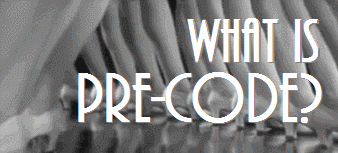
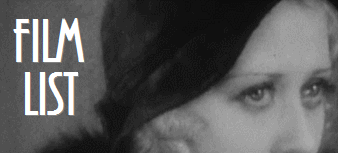
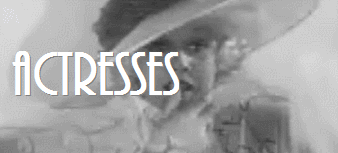
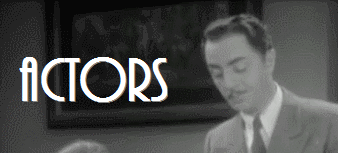
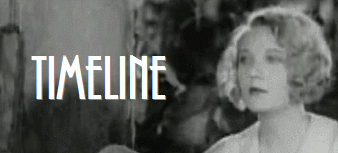
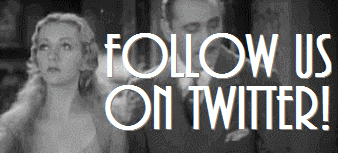

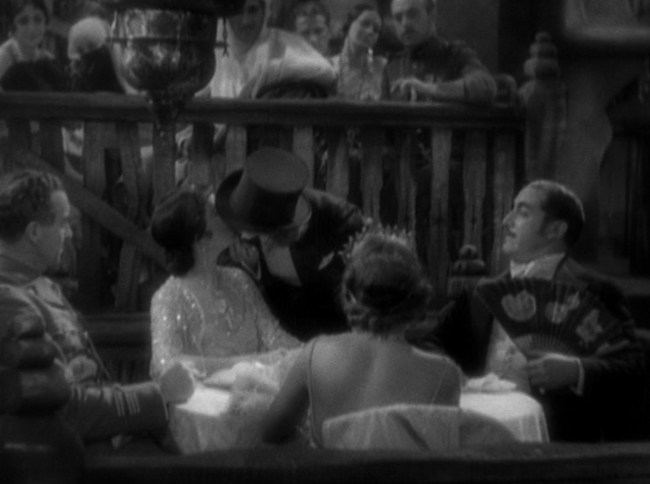
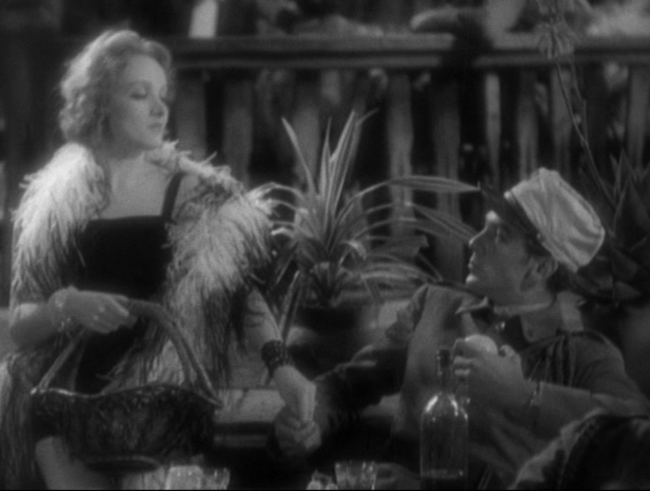
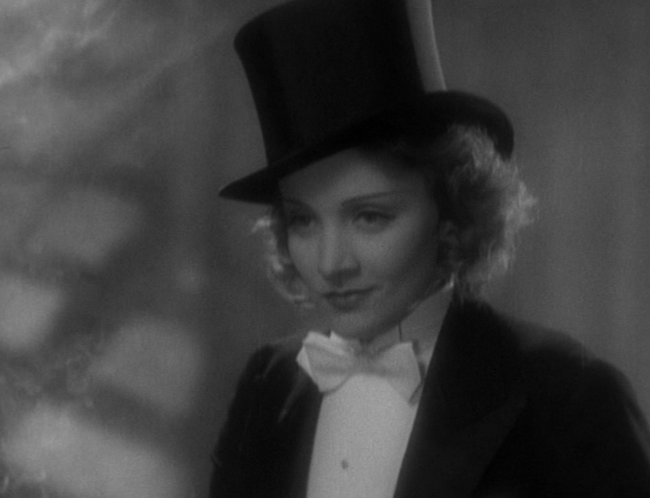
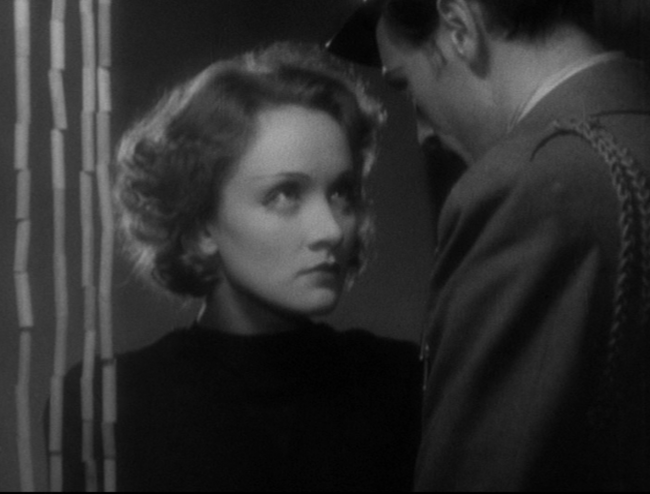
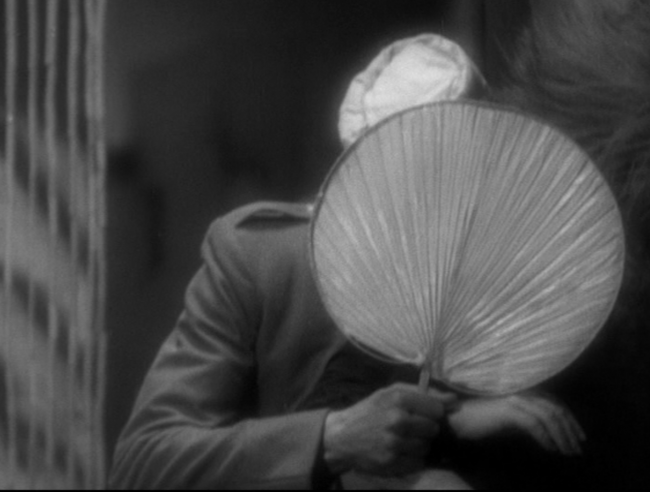
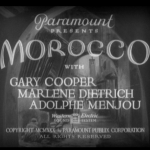
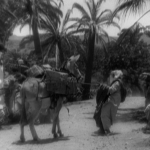
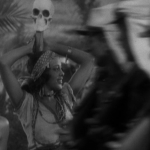

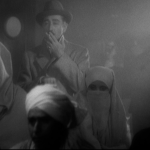
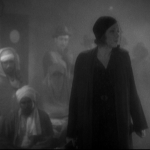
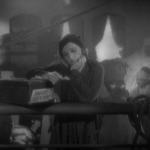
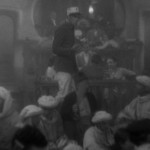

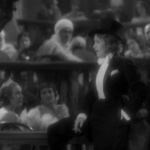
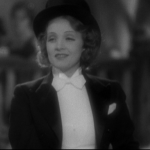
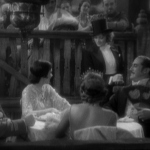

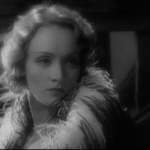
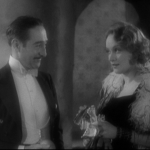
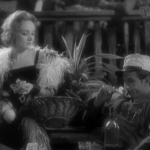
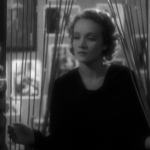
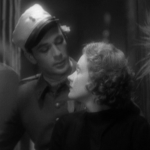
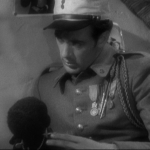
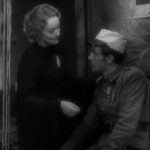
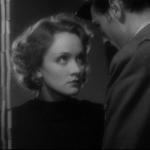
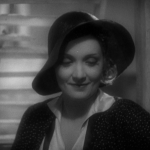
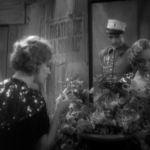
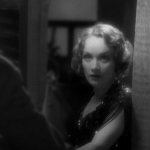
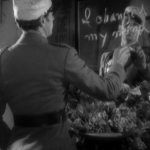
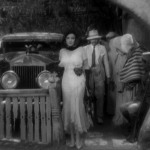
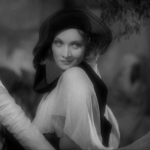
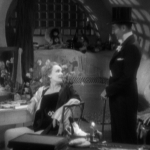

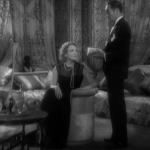
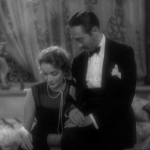

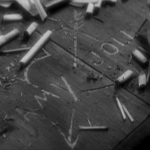


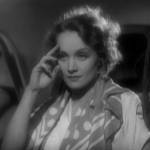
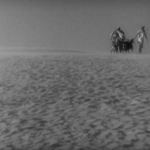
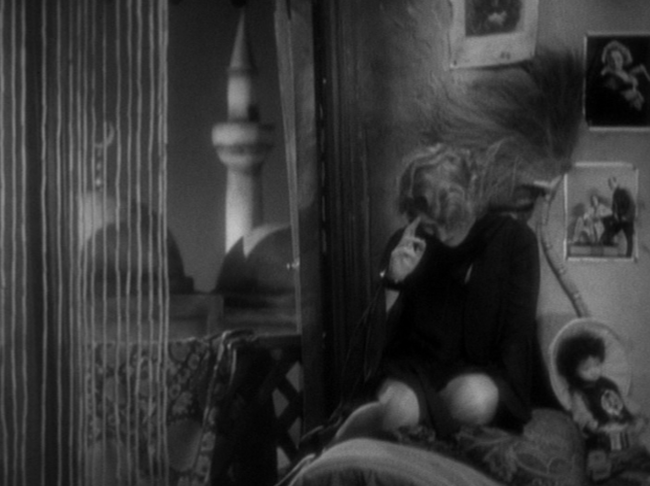
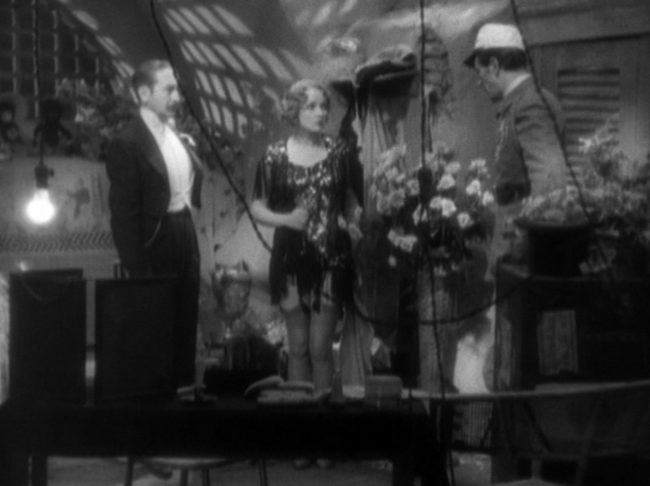
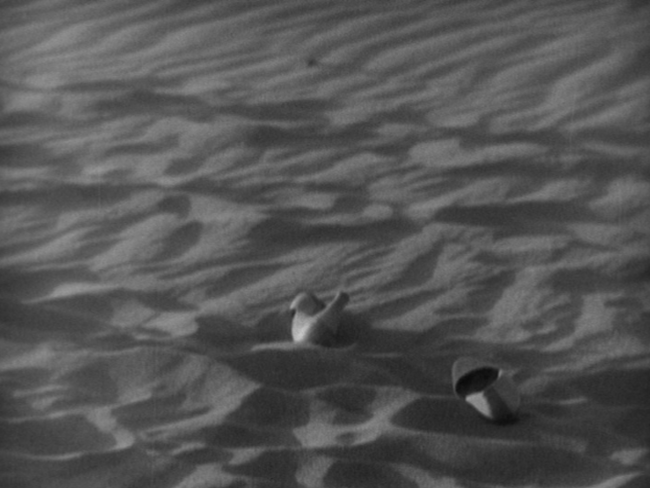



4 Comments
Risingson Carlos · February 4, 2017 at 4:42 pm
Good review (as usual). I actually love this one: I was lucky enough to see it for the first time in a big screen and in the pearls screen I could not close my mouth of the amazement. And when that ending came we all left the cinema silently, keeping those last seconds forever in our minds.
And I cannot understand what Gary Cooper was complaining about: he looks HOT, never looked better.
Portia · May 30, 2017 at 5:02 pm
We love these pre-code films because they were able to speak the truth. To view them through the eyes of modernism is to miss everything.
drush76 · June 6, 2017 at 8:11 pm
Actually, I thought Marlene Dietrich was the film’s weak link. During the early 30s, she never struck me as the first-rate actress that she eventually became. Her performance seemed a bit wooden whenever she opened her mouth to speak.
ramonjurado01 · May 29, 2021 at 12:12 am
Indifferent????
Comments are closed.